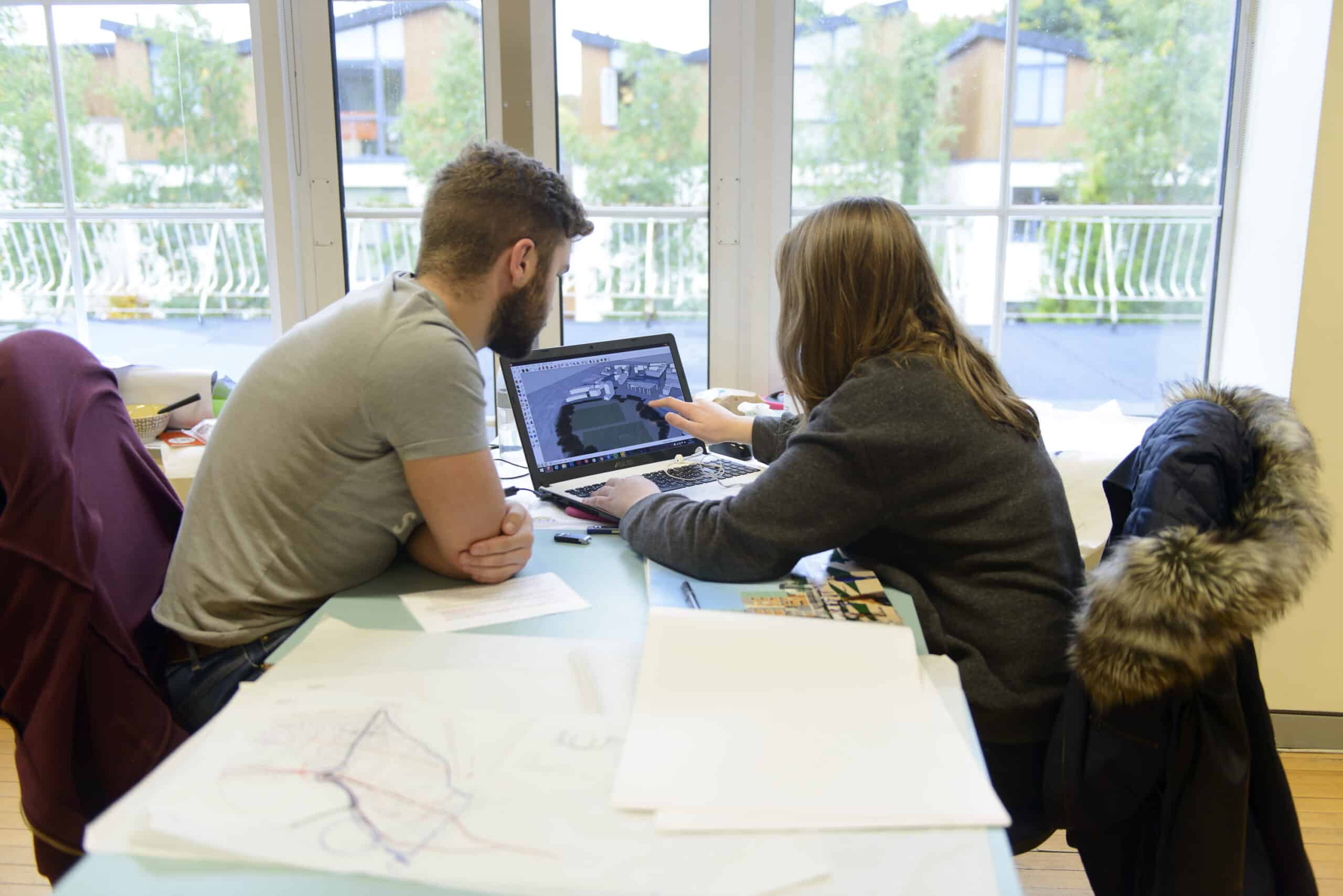University College Dublin isn’t new to pursuing a more sustainable and equitable future; the United Nations’s Sustainable Development Goals (SDGs) are embedded into the programmes, especially those offered by the College of Engineering and Architecture. Here, positively impacting the SDGs covers educating engineering, architecture, planning, and policy professionals and researching technology, design, and policy.

Dr. Fiachra O’Loughlin. Source: UCD
“My students and researchers have been involved in several projects where sustainability lies at the core,” says Dr. Fiachra O’Loughlin, Assistant Professor of Hydrology at UCD. His MEngSc Water, Waste & Environmental Engineering students are learning and using new and existing tools and methodology to help understand and model the environment, including estimating the impact of climate change on the water quality and quantity. Dr O’Loughlin’s research group is involved in several projects researching the impact of climate change and land use change on water quality and quantity and the effects of forestry operations on water quality across Ireland and the globe, including the use of remote sensing to estimate water quality and investigating the impacts of peatland restoration.
As part of a two-person team with fellow UCD College of Engineering and Architecture’s Dr. Liana Ricci, he took part in the 2023 Science Foundation Ireland-Irish Aid SDG Challenge. It included six research teams – three of which were from UCD – receiving more than two million euros in government funding to develop innovative solutions to climate action changes. Together, Dr. O’Loughlin and Dr. Ricci (an Assistant Professor of Environmental Policy) explored relationships between urban development, water and ecosystems to improve the management of drought and floods in sub-Saharan cities.

Dr. Liana Ricci. Source: Liana Ricci
Expert faculty like them design programmes that equip students with the key skills and knowledge to build a sustainable future.
“The perception that civil engineering is only about building and construction sites is far from true,” says Dr. O’Loughlin. “To be able to address future challenges in a sustainable approach that will benefit society requires civil engineers to be at the forefront of new technologies and approaches.”
Engineers and architects bring the technical expertise to deliver and create sustainable infrastructure and technologies, while planners and environmental policy researchers develop the policies and the regulatory environment that supports those developments. UCD’s MSc Environmental Policy graduates and researchers are already heavily involved in policy advice to national and international governments and organisations. MSc Environmental Technology, MSc Architecture, Urbanism & Climate Action, and MSc Sustainable Energy & Green Technologies graduates and researchers are just as involved in shaping a more sustainable future.
Prolific research
UCD is first in Ireland for the highest volume of research publications per year, with 685 million euros in funding in the past five years. It’s home to a community of world-class academics making fundamental discoveries with real, far-reaching impact for people and our planet.
As a student here, you benefit from the past and ongoing research conducted by active faculty — with many opportunities to participate. While faculty members direct the research projects, much of it is aided by postgraduate students and full-time post-doctoral research staff. This way, students are taught and trained to be the next generation of researchers who will contribute to the economy and society during their studies at UCD.
Professor Dr. Francesco Pilla’s expertise lies in smart cities, specific geospatial analysis, and urban dynamics modelling. He has several projects funded by the European Commission to tackle different sustainability challenges, and most have a living lab approach that strongly focuses on empowering local communities and stakeholders with tools and knowledge to tackle those sustainability challenges actively. One example is “REALLOCATE”, a project that aims to transform streets into inclusive, green, safe and future-proof urban spaces.

Dr. Francesco Pilla. Source: Paul Sharp
The scope of his experience and projects thus allows him to incorporate various forms of experiential learning into his Smart City module. With his current REALLOCATE project, his students work on developing sustainable mobility solutions to reduce car dependence and improve mobility on campus.
“I usually involve students in my projects by designing their group projects so that they can contribute to the research in those projects,” says Dr. Pilla. “For example, I get the students to participate in citizen science activities to monitor environmental pollutants and traffic or I ask them to develop ideas and solutions for sustainability challenges.”
Other hands-on learning opportunities are available too, as the college actively coordinates and partners with international and local research projects in academia, the private sector and public institutions. Various topics and areas of interest are covered during these research projects and work experiences, including spatial planning, housing, environmental economics, sustainable design and performance, and more.
Central to these efforts is the UCD Energy Institute, a hub of independent research specialising in energy education, research, demonstration, outreach, and the host to the Next Generation Energy Systems (NexSys) research partnership. Here, students are exposed to research that targets real-world problems, witnessing the institute communicating to industry, government and other policymakers about evidence-based pathways to net zero.

Prof. Andrew Keane. Source: Andrew Keane
“It’s very clear that no single discipline will enable the energy transition,” says Prof. Andrew Keane, Director of NexSys and the Energy Institute. “Our members come from disciplines like engineering, economics, business, social sciences, and the built environment, all with a focus on a systems approach. Students at the institute benefit from this diversity of approaches and insights, allowing them to build knowledge and transferable skills while accessing various career options.”
Follow UCD College of Engineering and Architecture on Facebook, YouTube, Instagram, X, Flickr, and LinkedIn











